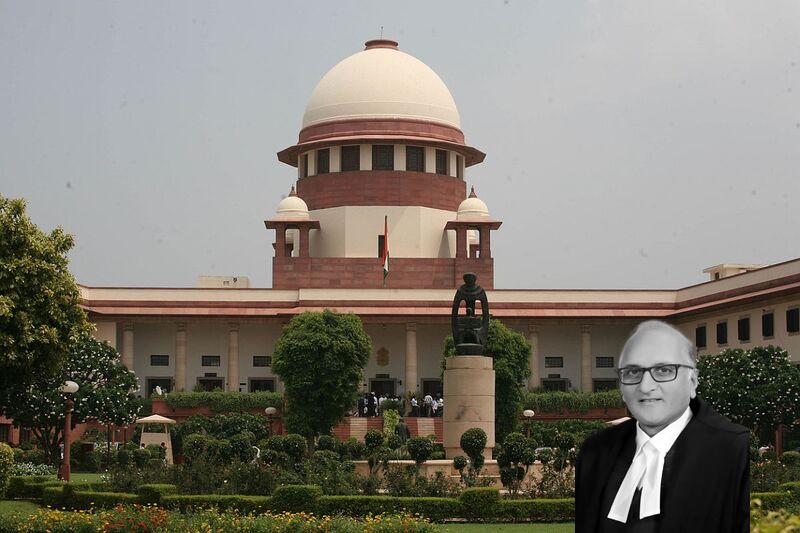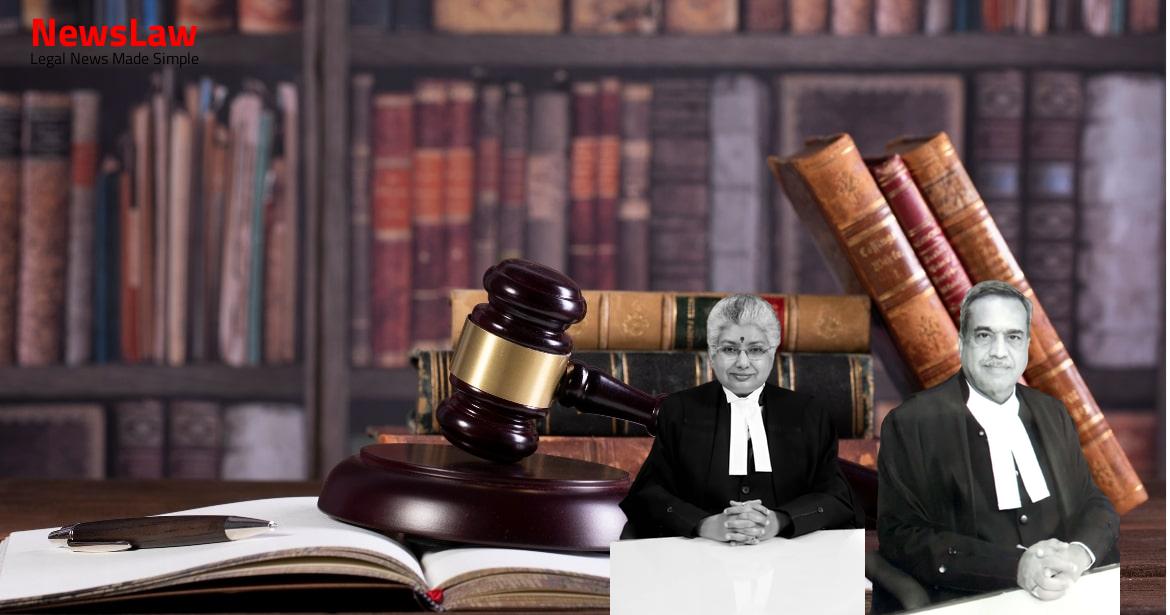This appeal, at the instance of M/s Unibros (“appellant”, hereafter), registers a challenge to the judgment and order dated 9 December, 2019 in FAO (OS) 229/2010 passed by the High Court of Delhi (“High Court”, hereafter) dismissing an appeal carried by the appellant under section 37 of the Arbitration and Conciliation Act, 1996 (“the Act”, hereafter). Disputes and differences emerged between the parties owing to such delay, which were subsequently referred to an Arbitrator (“Arbitrator”, hereafter) for resolution. 2,00,00,000.00 (Rupees two crore) be Page 3 of 17 granted as redress for the loss of profit endured due to the appellant’s protracted retention on the contract without any corresponding increase in monetary benefits earned. 1,44,83,830 (Rupees one crore, forty-four lakh, eighty-three thousand, eight hundred and thirty) towards Claim No 12, along with an interest of 18% per annum under Claim No 13 from 12 May, 1997 to the date of actual payment.
Applying Hudson’s formula, the Arbitrator arrived at the final compensation for loss of profit, the computation of which is outlined below: Page 4 of 17 b) Aggrieved by the aforesaid First Award, primarily to the extent it awarded Rs.1,44,83,830.00 towards loss of profit to the appellant, the respondent filed an objection under section 34 of the Act before the High Court impugning the decision pertaining to Claim Nos. 10 & 11 were rejected on the ground that no sufficient evidence had been placed on record by the respondent indicating increase in the prices/rates for the work executed after the stipulated contract period and also on account of establishment, machinery, centering/shuttering etc., Claim No.12 was allowed by the arbitration (sic, arbitrator) without even considering whether the respondent has placed credible and reliable evidence as required to be proved. Since the award passed by the arbitrator is set aside to the aforesaid extent, the award of interest in Claim No 13 Page 5 of 17 in respect of the amount of Claim No 12 also stands set aside and quashed and the same are remitted for reconsideration and decision.
Employing the doctrine that within a contract, gains prevented qualify as loss sustained, the Arbitrator observed that the appellant was not required to establish the exact amount of gain or loss with absolute certainty; instead, presenting fairly persuasive and the best available evidence under the particular circumstances of the case would suffice. The learned Single Judge of the High Court vide judgment and final order dated 25 February 2010 allowed the objection under Section 34 and Page 6 of 17 rejected the appellant’s claim under Claim No 12 with an observation that there was no sufficient evidence presented by the appellant to establish the claimed loss of profit; the lack of records regarding the alleged utilization of men, material, machinery, overheads, and other resources in the contract performance that could have otherwise been used for other profitable contracts raised doubts about the legitimacy of the claimed losses under Claim No 12. In the facts and circumstances of the case, I award costs of Rs.50,000/- in favour of the petitioner and against the respondents… Accordingly, in the facts of the present case, I deem it fit to award interest on the costs.” e) Dissatisfied with the findings of the learned Single Judge, the appellant preferred an appeal before the Division Bench of the High Court under Section 37 of the Act. Taking exception to the decisions of the Single Judge as well as the Division Bench, Mr Sameer Rohatgi, learned counsel appearing on behalf of the appellant advanced the following submissions: a) The learned Arbitrator had arrived at a just and reasoned conclusion after carefully perusing the materials and evidence on record and in the absence of any perversity or caprice, the courts cannot interfere with the award. Learned counsel placed reliance on the specific excerpt of this Court’s decision, which is extracted below for facility of reference: “11…When the arbitrator has applied his mind to the pleadings, the evidence adduced before him and the terms of the contract, there is no scope for the court to reappraise the matter as if this were an appeal and even if two views are possible, the view taken by the arbitrator would prevail. vs State of Gujarat was relied upon to submit that a contractor is entitled to damages for loss of expected profit on the remaining work and only a broad evaluation is required to assess the amount of damages instead of going into minute details; and e) Hudson’s formula has received legal acceptance and is generally used by courts and other judicial bodies in awarding loss of profit.
Urging this Court Page 10 of 17 to dismiss the appeal and confirm the decisions of the Division Bench as well as the Single Judge, the ASG advanced the following submissions: a) The present case being that of delay simpliciter, Hudson’s formula will have no application to award any amount for loss of profit without the aggrieved party leading any evidence as a condition precedent to the application of the said formula. In the absence of cogent evidence substantiating a genuine loss of profit or opportunity, it would be unjustifiable to permit the contractor to capitalize solely on the application of a formula. 10 (compensation for increased prices/rates after the contract period) and 11 (compensation for the establishment, machinery, centring/shuttering, etc.) due to the absence of credible evidence, the Arbitrator, on the other hand, proceeded to grant damages for loss of profit under Claim No 12. The contentions advanced on behalf of the appellant tasks us to resolve a recurring issue which, while not unprecedented, has consistently confronted the courts leading it to navigate various circumstances under which a claim for loss of profit may be allowed in cases of delay simpliciter in the execution of a contract. What is for public good or in public interest or what would be injurious or harmful to the public good or public interest has varied from time to time. Having read the Second Award, we have no hesitation to hold that it fares no better than the First Award, for, it is equally in conflict with the public policy of India.
He once again emphasized on delay caused by the respondent in completion of the works entrusted to the Page 14 of 17 appellant by not providing complete site and drawings within the stipulated contract period and that non-handing over of site certainly constituted fundamental breach of contract vitiating the entire contract. In the wake of authority of judicial determination made by the Courts of law, any award of an arbitrator or a tribunal that seeks to overreach a binding judicial decision, in our opinion, does conflict with the fundamental public policy and cannot, therefore, sustain. To support a claim for loss of profit arising from a delayed contract or missed opportunities from other available contracts that the appellant could have earned elsewhere by taking up any, it becomes imperative for the claimant to substantiate the presence of a viable opportunity through compelling evidence.
While this list is not exhaustive and may include any other piece of evidence that the court may find relevant, what is cut and dried is that in adjudging a claim towards loss of profits, the court may not make a guess in the dark; the credibility of the evidence, therefore, is the evidence of the credibility of such claim. The law, as it should stand thus, is that for claims related to loss of profit, profitability or opportunities to succeed, one would be required to establish the following conditions: first, there was a delay in the completion of the contract; second, such delay is not attributable to the claimant; third, the claimant’s status as an established contractor, handling substantial projects; and fourth, credible evidence to substantiate the claim of loss of profitability. The Arbitrator, in view of such previous determination made by the High Court, could have granted damages to the appellant based on the evidence on record. ……………………………… J (S.



